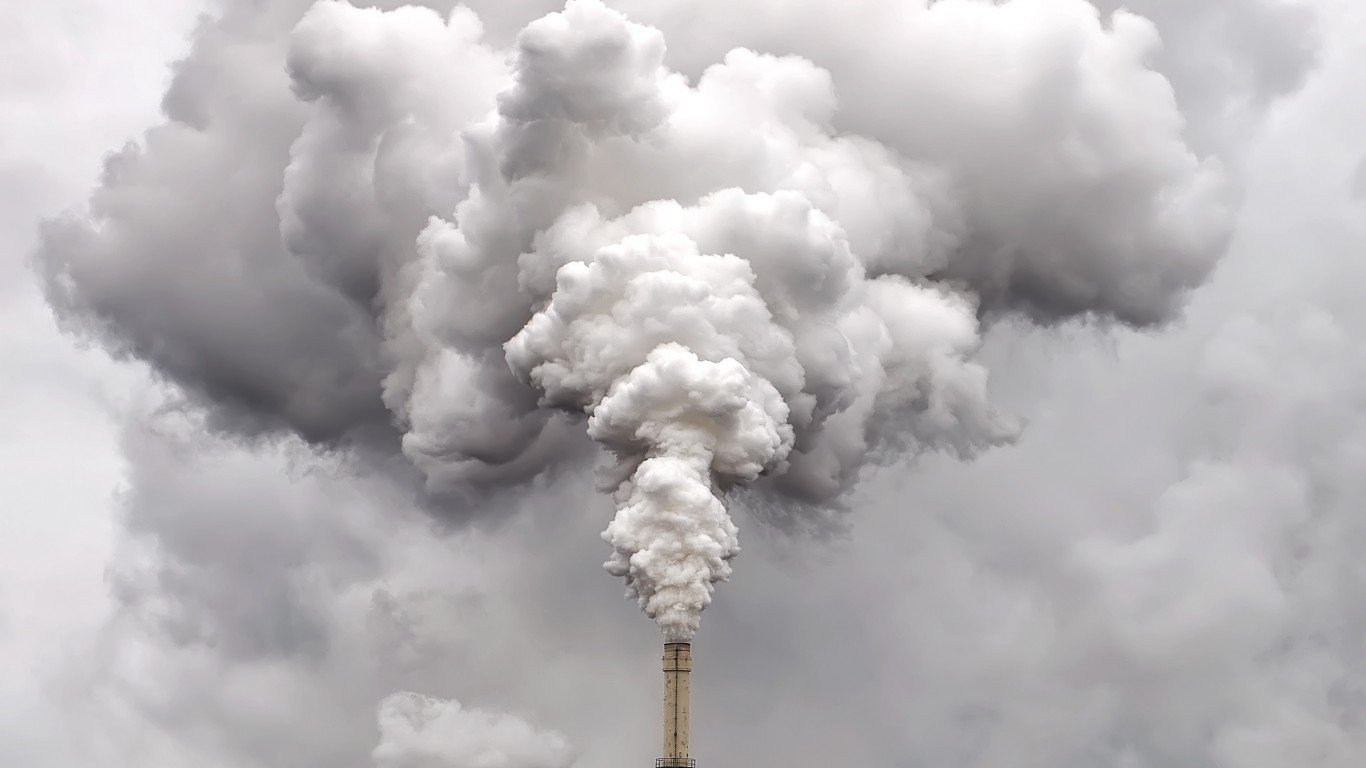

By David Callaway, Callaway Climate Insights
As Europe readies the first carbon border levies, a disturbing estimate arrives of the financial impact of sudden taxes on polluters, and their economies.
SAN FRANCISCO (Callaway Climate Insights) — Could carbon taxes cause the next financial crisis?
Amid a rising chorus of demands for taxes or other costs on carbon emissions to be imposed on polluters to help fight global warming, the latest economic analysis shows it might do more harm than good. A lot of harm, in fact.
In a report this week by Oxfam and Swiss Re, widely cited for its predictions that global warming could cost the economic equivalent of two Covid pandemics per year by 2050, an even more harrowing estimate was buried.
The researchers, in a section of the report called transition risks, looked at the possibility of dramatic asset shifts caused by poor timing in otherwise productive transition strategies — in this case a carbon tax. They found that sudden imposition of a carbon tax at $100 a metric ton, a price commonly called for by some economists, would result in 40% to 80% declines in the earnings per share of utilities, materials companies and electric companies.
Regional earnings would be hardest hit in Asia, where they could fall as much as 20%, while in Europe and the U.S. they could fall about 15%, the report said.
The levying of a tax would also rapidly increase credit risk for some of the larger polluters, with the oil and gas industries alone facing credit losses of $50 billion to $300 billion, the report estimated.
The effect would be spread unevenly among industries, with automakers facing losses of up to 20% while cement and concrete makers stand to lose more than a third. But it’s easy to see how it could spread to all markets.
Of course, there are always tradeoffs in something as big and important as transitioning the world economy from fossil fuel. But the researchers said they could be mitigated by a phased-in, well-guided approach by governments, as opposed to sudden taxes.
Which brings us to Europe, which next month is set to impose carbon levies on imported steel, cement and aluminum, based on the costs domestic producers already face. The importers would be required to buy offsets on the EU Emissions Trading System, where they currently trade for about $51, after a correction this month brought them down from record prices near $60.
Combining the levy with prices tied to a market as opposed to a fixed tax will ease the pain to some extent, but it’s clear those industries will be screaming protectionism no matter what the price. For the U.S., which is looking at similar levies, the latest report should be a wake-up call.
There is a lot of discussion at the World Economic Forum and IMF levels of potential climate risk to the financial world. Most of it falls in the range of weather-related impact on insurance portfolios, or potential for stranded assets in the energy industry as investors increasingly turn their backs on oil and gas companies.
This report puts a face on what a self-inflicted systemic scenario would look like across industries and financial markets. It adds some context to why the Biden Administration has been reluctant to pursue carbon taxes while at the same time going for taxes on just about everything else.
But it also complements the argument that a market-based carbon pricing system, with an approach phased in by market prices rather than imposed, would be the preferable approach.
Any number of temperature and air quality reports tell us each week that time has pretty much run out for us to prevent global warming. There is no time to lose. But to transition vast amounts of energy and transportation industries from fossil fuels to renewable energy must be done without the type of economic and market shock that would cause governments to abandon transition to begin with.
A market-based approach is the most effective way to accomplish this. It’s messy, but it’s proven. Most of all, it’s doable.
Free Callaway Climate Insights Newsletter
Sponsored: Want to Retire Early? Start Here
Want retirement to come a few years earlier than you’d planned? Orare you ready to retire now, but want an extra set of eyes on your finances?
Now you can speak with up to 3 financial experts in your area for FREE. By simply clicking here you can begin to match with financial professionals who can help you build your plan to retire early. And the best part? The first conversation with them is free.
Click here to match with up to 3 financial pros who would be excited to help you make financial decisions.
Thank you for reading! Have some feedback for us?
Contact the 24/7 Wall St. editorial team.



